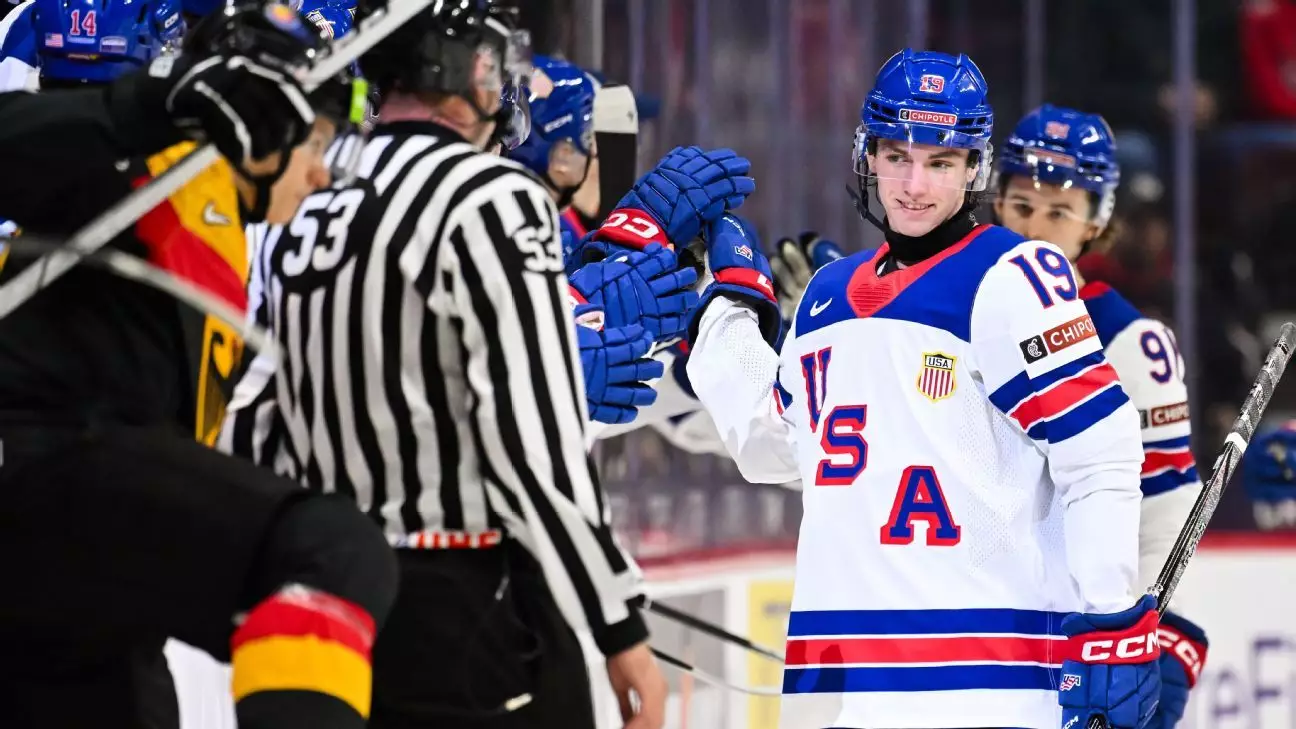The IIHF World Junior Championships have long been a spectacular event that showcases elite under-20 hockey talent from around the globe. Beyond the on-ice competition, a unique tradition has emerged in recent years: the selection of goal celebration songs. This delightful custom adds a festive atmosphere to the tournament, especially among Canadian fans who eagerly await the reveal of the anthems. As the event nears, discussions surrounding choice and quality of these songs have evolved into something of a cultural phenomenon.
Goal songs have become a symbol of team identity and celebration, resonating with players and fans alike. They provide a sense of camaraderie and shared experience that transcends the competitive nature of the tournament. For players, the right song can serve as a motivational backdrop, while fans often use these anthems to express their excitement and gather energy in the arena.
In 2025, the choice of “Live is Life” by Opus as the official goal song stirred debate among hockey enthusiasts. After previous years featuring energetic hits like DJ Kool’s “Let Me Clear My Throat” and Blur’s iconic “Song 2,” the reaction was less than enthusiastic. Fans voiced their disappointments online, longing for vibrancy and hype that they felt was missing from the new selection. This illustrates how crucial the goal song has become—not simply as entertainment, but as a critical part of the fan experience.
Among the teams, Team USA has stood out with a bold decision for their goal celebration. They opted for Lynyrd Skynyrd’s “Free Bird,” a timeless rock anthem that encapsulates an appreciation for musical heritage. This choice was notably influenced by defenseman Zeev Buium and goalie Jacob Fowler’s shared love for the classic hit. Their decision-making process, which took place casually among teammates, reflects the collaborative spirit within the team.
Buium’s casual recounting of the song selection process underscores a fundamental aspect of team dynamics—bonding over music. His comment about how they were “hanging out on the bus” showcases a lighter, more human side of sports that often goes unnoticed amidst the high-stakes competition. The culture of teamwork often extends beyond drills and strategy, finding its way into personal interests like music, which can strengthen connections.
One of the intriguing elements of Team USA’s choice was deciding which part of the nearly nine-minute song would be used for goal celebrations. The selected segment starts at the 4:45 mark, ushering in a buoyant atmosphere right when the guitars erupt into a lively riff. Players aiming for a catchy and singable melody for celebratory moments made a careful selection to optimize the impact on the team and its fans.
As fans, we often underestimate the power music holds during sporting events. The role of the goal song is not merely a backdrop but an integral aspect of the match experience. The U.S. team’s favorable reception of „Free Bird“ during their 10-4 victory over Germany in their opening game serves as validation of this philosophy. When players connect with the music and fans engage with it, the enjoyment of the sport is enriched immensely.
As the championship progresses, the anticipation of more goals and songs creates an exciting buzz surrounding Team USA. Should they continue their success, the increasing instances of “Free Bird” echoing through the arena may solidify its place in the folklore of this tournament. The shared echoes of rock music and the communal experience of scoring can create lasting memories for players and fans alike.
The IIHF World Junior Championships demonstrate that the spirit of sports competition isn’t limited to the ice. As these young athletes vie for gold, their choice in goal songs holds significance that resonates far beyond the game. Ultimately, „Free Bird“ is more than just a catchy tune; it is a celebration of creativity, connection, and the joy of sport. Whether a song evokes nostalgia or encourages revelry, these anthems will continue to shape the rich tapestry of the World Juniors for years to come.


Napsat komentář